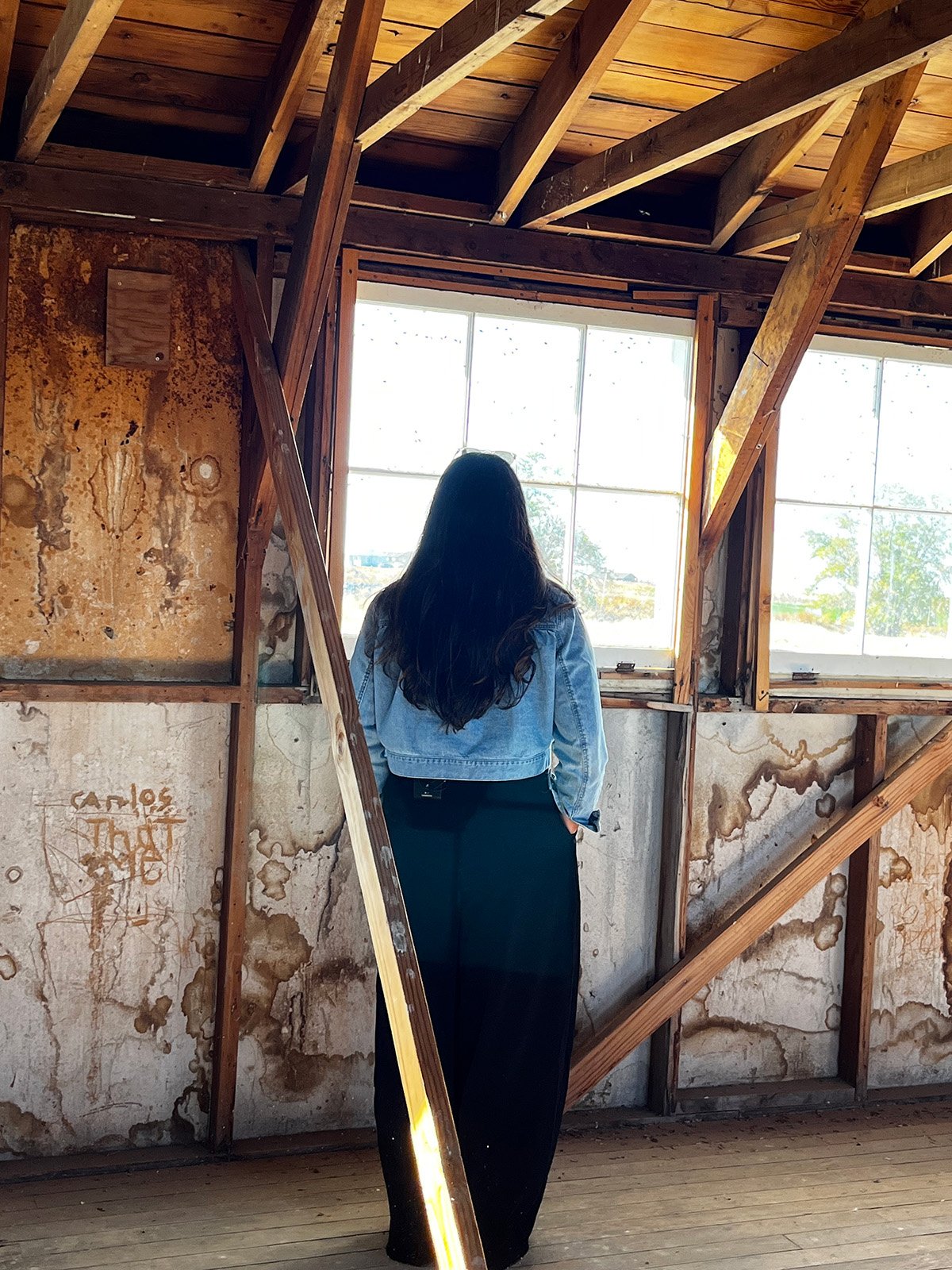Survivor/Descendant Reflection by Maggie Tokuda-Hall
Author Maggie Tokuda-Hall visited Minidoka National Historic Site for the first time as an adult in early October. In her descendant reflection, she states “...it was my first time ever being able to experience the camp with a full understanding of what it was, and the experience was unique in my life. Profound, of course, and humbling. But also galvanizing…” Read her full reflection below.
I want to thank the Idaho Library Association and Friends of Minidoka for bringing me to Minidoka this past month. It was my first time ever being able to experience the camp with a full understanding of what it was, and the experience was unique in my life. Profound, of course, and humbling. But also galvanizing. As a writer I am always hunting for the physical and sensory details that make a place come to life. And as I walked today through Minidoka, my fingers trailing through the sagebrush alight with butterflies, brushing along the cracked wooden walls of the barracks, tapping against the glass that buzzed with seemingly hundreds of flies and wasps, I felt a new understanding of this place where my grandparents met and fell in love.
As we walked by the baseball field, a red tailed hawk swooped over the adjacent field, hunting for quarries we could not see. At home in California, I see red tailed hawks just like that one, and now I cannot help but wonder who's history those hawks I take for granted swoop above. What stories are hidden in the fields that I pass through, unthinking, that also hold the echoes of history. Of displacement and forced removal. Of state sanctioned violence. Of young people falling in love despite all those things that could have made their connection impossible. How lucky we are, as the descendants of this history, of the keepers of these stories, that Minidoka still exists. That there is still ground for us to walk upon and reflect upon what happened to us, and to challenge us to resist the same treatment for others. To inherit these stories is a responsibility. Minidoka reminds us of that, forces us to remember, and to honor the experiences of those so unjustly incarcerated. So often I feel so distant from this history, from this place. Seeing that hawk, so familiar, and knowing my grandparents looked at birds just like, I felt so much closer than I had before; that history is freshly urgent.
That day I had the chance to walk alongside the canal my grandparents used to walk along as they were courting. And what a powerful thing, what a beautiful continuation of their legacy. That I might return in my full power, in appreciation of their experience, in deference to their pain, and in honor of their joy. Seagulls flew overhead, squawking, their raucous delight. A reminder to me that time passes, even in the places where time has-- through trauma or loss or pain-- been forced to stand still.
To tell these stories is a responsibility. To tell these stories to children is a sacred responsibility. And children deserve the truth. Too frequently now educators, for fear of harassment or defunding their institution or the loss of their own livelihood— are quietly censoring stories like this, culling them from libraries and school bookshelves. All this thanks to the vociferous protestation of a violent minority. As descendants, it is also our responsibility to refuse to be silenced. For when we truthfully speak to our own history, we can better advocate for a more just future for all. And make no mistake: that better future, that more just world, is exactly what these book bans are meant to arrest.
Please consider making a donation of $18.99 to Friends of Minidoka to place a copy of Love in the Library in a school library in Idaho. Our goal is to give a copy of Love in the Library to 85 school libraries. Donate a copy here! You can also purchase a copy of the book for yourself to enjoy here.



